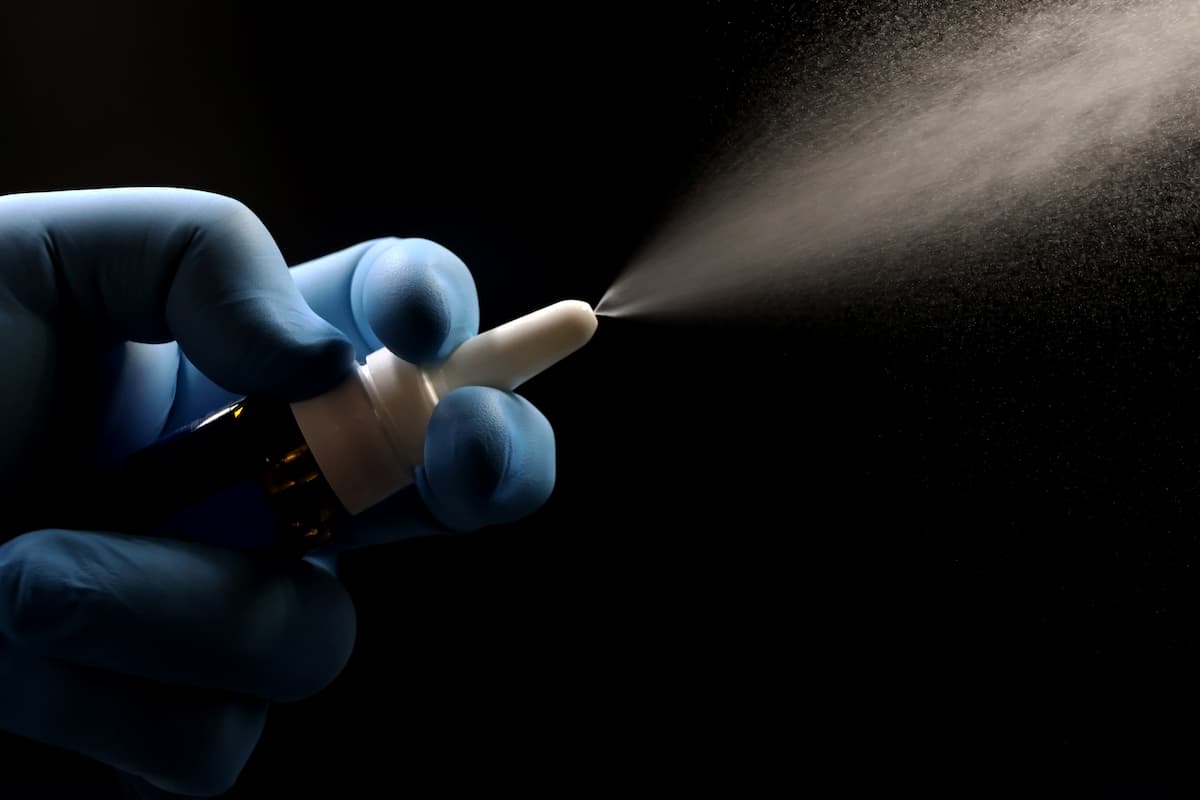- Clinical Technology
- Adult Immunization
- Hepatology
- Pediatric Immunization
- Screening
- Psychiatry
- Allergy
- Women's Health
- Cardiology
- Pediatrics
- Dermatology
- Endocrinology
- Pain Management
- Gastroenterology
- Infectious Disease
- Obesity Medicine
- Rheumatology
- Nephrology
- Neurology
- Pulmonology
Nasal COVID-19 Vaccine Poised to Enter Phase 1 US Clinical Trial
The study will assess the safety and efficacy of a next-generation COVID-19 vaccine via nasal spray and inhalation.
©TopMicrobialStock/AdobeStock

A next-generation nasal COVID-19 vaccine, designed to offer enhanced immunity at the virus's entry point, is moving forward in the US with a phase 1 clinical trial.
In a January 27, 2025, press release, Ocugen, Inc. announced that the US FDA cleared an investigational new drug application for a phase 1 study of the company’s OCU500 vaccine for the prevention of COVID-19.1
Ocugen, a US-based biotechnology company, licensed the technology from the Washington University in St. Louis (WashU) in 2022. The investigational COVID-19 vaccine is administered via 2 routes, inhaled into the lungs and sprayed into the nose, and is designed to induce strong immunity in the upper respiratory tract, potentially preventing virus transmission in addition to reducing severe illness.2
“I am delighted to see this nasal vaccination technology, created by scientists right here at WashU Medicine, advance toward clinical trials,” Doug E. Frantz, PhD, the Vice Chancellor for Innovation and Commercialization at WashU, said in a February 5, 2025, press release. “This powerful technology has the potential not only to help control COVID-19 but to reduce the burden of respiratory infections worldwide. The technology could be adapted for other common respiratory viruses such as seasonal influenza, avian flu and respiratory syncytial virus (RSV) that cause enormous sickness and death.”2
The National Institute of Allergy and Infectious Diseases (NIAID), part of the National Institutes of Health (NIH), will sponsor and conduct the trial, which is expected to begin this spring. The study, funded through Project NextGen, will enroll 80 adults aged 18 to 64, testing both intranasal and inhaled delivery methods in varying doses. While the primary objective is to assess safety, researchers will also evaluate immunogenicity by measuring antibody production and efficacy by determining the number of breakthrough cases.2
The investigational vaccine was co-developed by WashU Medicine scientists Michael S. Diamond, MD, PhD, and David T. Curiel, MD, PhD. They inserted a gene from SARS-CoV-2 into adenovirus, a harmless virus that carries the SARS-CoV-2 protein into the nose, stimulating an immune response without causing illness. A version of the vaccine has been available in India since 2022 through Bharat Biotech.2
“It is gratifying to see the vaccine that we conceived, designed, and conducted initial testing on move closer to becoming available here in the U.S.,” Diamond said in the press release. Prior research conducted by Diamond and Curiel showed that the nasal COVID-19 vaccine prevented infection entirely in animal models, and additional studies indicated that vaccinated hamsters did not transmit the virus to others.²
“All effective vaccines reduce sickness and death, but COVID-19 vaccination through the nose and mouth also seems to reduce transmission,” Curiel added in the release. “This capability is critical in slowing the spread of respiratory infections such as COVID-19 through a population, and the same vaccine technology can be designed to target other COVID-19 strains as well as influenza and other respiratory viruses.”2
References:
1. Ocugen, Inc. announces investigational new drug application in effect after review by FDA to initiate phase 1 clinical trial evaluating first-in-class OCU500 inhaled vaccine candidate for COVID-19. News release. Ocugen. January 27, 2025. Accessed February 7, 2025. https://ir.ocugen.com/news-releases/news-release-details/ocugen-inc-announces-investigational-new-drug-application-effect
2. Nasal COVID-19 vaccine based on WashU technology to enter U.S. clinical trials. News release. University of Washington School of Medicine. February 5, 2025. Accessed February 7, 2025. https://medicine.washu.edu/news/nasal-covid-19-vaccine-based-on-washu-technology-to-enter-u-s-clinical-trials/
